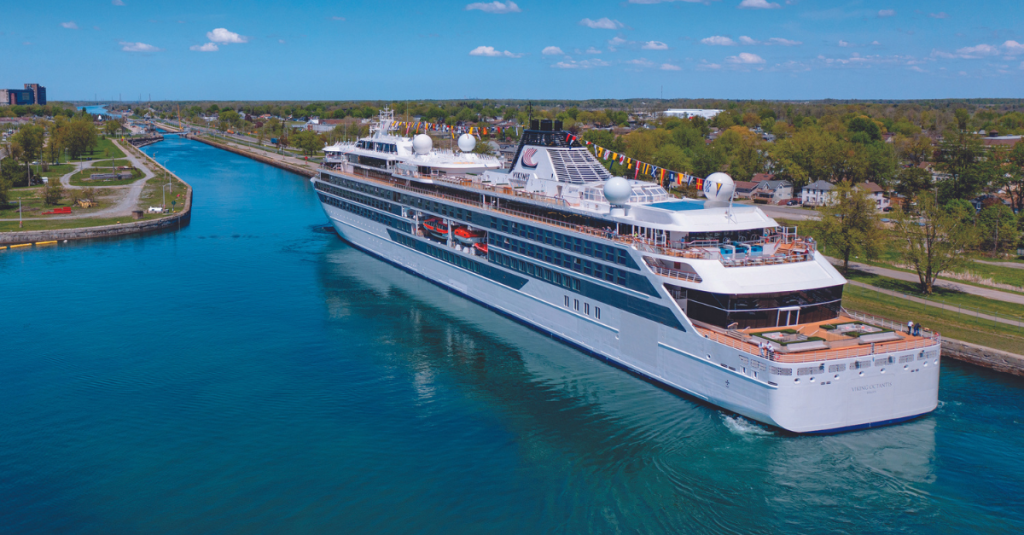Viking Cruises’ controversial focus on direct sales, bypassing traditional travel agents, has sparked significant industry debate.
Advantage Travel Partnership’s John Sullivan raises concerns, emphasizing the essential role of agents in engaging new customers.
Implications of Direct Sales Strategy
Viking Cruises’ recent shift towards a direct sales strategy, bypassing traditional travel agents, has stirred significant discussions within the industry. Viking’s management argues that direct sales help in reducing commission costs, thereby improving profit margins. However, experts like John Sullivan, Advantage Travel Partnership’s head of commercial, see potential drawbacks, highlighting that agents serve as crucial ‘gateways’ to untapped markets.
According to Sullivan, travel agents possess the expertise and personal touch that digital platforms lack, enabling them to reach out to customers who might not have considered a river cruise. This sector knowledge could be instrumental in driving sales that digital marketing strategies might not capture. The strategy potentially overlooks the essential role of agents in broadening the customer base.
Viking Cruises’ Market Expansion
Viking Cruises’ parent company announced its intention to file for an initial public offering (IPO) in the United States, signalling a robust strategy for market expansion from river and ocean cruises into land-based tours. This strategic move indicates a diversification of services and a strong focus on enhancing direct bookings.
The anticipated growth from these direct bookings is expected to add substantial value to Viking Cruises’ business operations, potentially reducing dependency on travel agents. This development invites speculation about how far the company can grow its customer base by relying solely on direct bookings.
Agents’ Role in Travel Sector
John Sullivan’s insights suggest that many cruise lines still see the value in maintaining strong ties with travel agents. He emphasizes that while direct sales can lower distribution costs, agents often provide added value through their ability to upsell and their understanding of customer needs.
Sullivan also points to the unique advantages agents offer in promoting brand distinction and the fast-growing river cruise segment. He notes that leveraging agents’ expertise can be a cost-effective way to increase market penetration, especially when considering the ‘halo effect’ of TV advertising that directs potential customers to these agents.
The ‘Halo Effect’ of TV Advertising
Despite Viking Cruises’ direct sales focus, Sullivan argues that investments in television advertising appear to benefit travel agents by creating a ‘halo effect’. As Viking invests heavily in advertising, it inadvertently drives curious consumers towards agents to seek further information and advice.
This dynamic supports agents in converting interest into bookings for cruise lines engaged with the trade, inadvertently boosting sales through indirect channels. This phenomenon suggests a symbiotic relationship where both direct and agent-led sales strategies can coexist, benefiting from each other’s strengths.
Sector Growth and Future Projections
The river cruise sector is currently recognised as the fastest-growing segment within the cruise industry. With an ever-increasing consumer interest, this sector presents abundant opportunities for both direct and trade-supported sales strategies.
Future projections indicate continued robust growth, driven by consumer appetite for unique travel experiences. Industry experts project that maintaining a balance between direct sales and trade partnerships will be key in leveraging the full potential of this expanding market.
Revised Marketing Approaches
In response to the evolving landscape, Advantage Travel Partnership is enhancing its cruise marketing tools to assist members in promoting their expertise, especially in river cruising. These tools aim to empower agents with better resources to compete effectively.
Sullivan’s strategy includes spotlighting sector expertise as a marketing focal point, strengthening members’ ability to demonstrate unique value propositions to potential customers. By focusing on river cruising’s distinct appeal, members can differentiate themselves in a competitive market.
Conclusion
The discussion surrounding Viking Cruises’ direct sales strategy highlights the ongoing debate over the best approach to market expansion in the cruise industry. Balancing direct sales with trade partnerships seems to offer a viable pathway, allowing companies like Viking to expand while still tapping into agents’ valuable expertise.
The balance between direct sales and trade partnerships could define the future success of cruise companies like Viking, leveraging both strategies effectively.
For Viking, as it navigates this shift, recognising the complementary role of agents can be vital for sustained growth.

